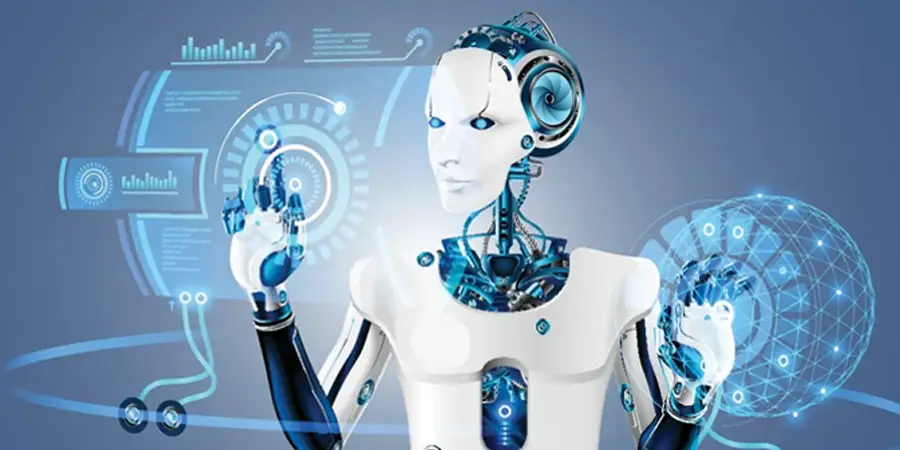The Role of Artificial Intelligence (AI) in Economics


In today’s world, we are witnessing an unprecedented rise in technological advancements, where artificial intelligence plays a vital role in transfiguring immeasurable sectors, including economics.
With technological advancement, the integration of AI with the economic system has changed the structure of business operations, decision-making in government and the private sector, etc. But if we try to understand how AI is helping to reshape the workings of the economy and what implications it will hold for the future, we will see various factors. Let us understand them one by one.
What is artificial intelligence (AI)?
Think for a while: what do you understand by AI? There will be ‘n’ number of answers coming to your mind at present. When there is a task that requires human intelligence, but the task is being done by the computer itself, it is called AI.
Definition of AI: “AI refers to the development of computer systems that can perform tasks typically requiring human intelligence. These tasks include learning, reasoning, problem-solving, perception, language understanding, and decision-making. AI systems are designed to process large amounts of data and improve their performance over time through techniques like machine learning and deep learning. AI has been applied in various domains such as healthcare, finance, transportation, and entertainment, significantly transforming these industries” (Russell & Norvig, 2021).
When it comes to application in economics, artificial intelligence relies on huge data, complex algorithms, trend analysis, optimisation, and prediction.
The Impact of AI on Economic Sectors
- Business and Industry
AI has transformed the way business is conducted through increasing efficiency and changing decision-making. AI has helped to automate manufacturing, thereby cutting side costs and boosting productivity. You can have AI-powered robots working tirelessly in factories to produce products at a consistent quality/speed and reduce the number of errors introduced by humans, for instance.
For instance, AI assists in the mapping of what trends and demand patterns customers might prefer in retail. As an example, one of the most popular use cases for AI in retail is that it can help retailers take advantage of customer data to optimise store inventory — identifying which products are likely to sell out because something big happened (such as a celebrity being seen wearing it) or what won’t move at all and should be marked down. It enhances customer satisfaction and saves on inventory carrying costs.
AI systems for trading, fraud detection, and other features in finance can analyse market trends much quicker than any human, so they make decisions faster and more accurately. In fact, many BA Economics colleges now include AI-driven financial tools in their curriculum, which help the students develop the skills necessary to work with data and algorithms in real-world scenarios. That is why an AI system for trading, fraud detection, and other features in finance can analyse market trends much faster than any human will do it and therefore will react quicker and more precisely than a person. A game changer in providing personal financial advice, AI also helps to provide personalised financial advice, making it intuitive for individuals to invest and manage their investments.
- Labour Markets
It is even reshaping the labour market, too. Although the fear of losing jobs to AI is real, there is a difference between fiction and reality. This usually results in most of the repetitive, routine activities being fulfilled by AI, that way freeing up humans for more creative and complex parts. In healthcare, where human lives are at stake, AI systems can enable doctors to diagnose diseases quickly and have more time for treatment and patient care.
Moreover, new industries and new employment opportunities appear because of AI. There is an extraordinary growth in demand for AI specialists, data scientists, and cybersecurity experts who are now given new career paths. But to take these new opportunities, workers must acquire new skills and adapt to the changing job market.
- Economic Policy and Decision-Making
The use of AI by governments and policymakers in decision-making is bound to increase going forward. Given large datasets, AI systems are well equipped to provide insights into trends of economic variables, inflation rates, employment statistics, and other critical indicators that will assist policymakers in finding effective policies for stabilising economies, creating sustained growth, and reducing inequality.
An example of this will be AI forecasting the impacts of different policy choices, such as interest rate changes or new taxes. Thus, a government, through simulation of various possible economic scenarios, can better prepare itself for various future challenges such as recessions and global financial crises. This technology has already started becoming a key focus in the top BA Economics Honours colleges, wherein the students are trained in both theoretical economics and data analysis to better understand the implications of AI on policy-making.
- Economic Forecasting and Modelling
Among other critical roles AI plays in economics is the forecasting aspect. Economics traditionally uses history-based models and assumes things that do not have to apply in a fast-changing world. AI, for example, can process enormous amounts of real-time data; it identifies different patterns, and it adapts to make predictions accordingly.
This can strengthen economic modelling since AI can consider not only the factors of consumer behaviour and supply chain disruptions but also geopolitical risks. This makes economic growth, inflation, unemployment, and even a possible financial crisis more predictable. Such knowledge helps businesses, governments, and financial institutions make better decisions and mitigate risks with maximum efficiency.
Conclusion:
Artificial intelligence essentially revolutionises economics. It has the potential to make firms more productive, lead to better economic policies, and improve decisions with optimized use of data. In fact, the same solutions also present new difficulties in terms of job displacement, bias, and ethics.
As we move forward, we must take the opportunities of AI and confront its challenges. Doing so will enable us to fashion an economic landscape that will work for businesses and governments and, most importantly, for people, with the resultant sustainable growth and prosperity.
At The NorthCap University, students enrolled in programs such as BBA-Business Analytics, BBA-Digital Marketing, and BA in Economics (Honours) receive education highly integrated with AI and data-driven insights. Its AI curriculum includes machine learning, data mining, and predictive analytics and trains students to analyse large datasets and make the best decisions. With an AI-enabled curriculum, students will leave the institution with practical knowledge of emerging technologies and skills in working with the capability of critical thinking and solving problems. The university thus readies its graduates to thrive in a rapidly evolving, tech-driven global marketplace by fusing ideas of AI with business and economics.
Therefore, students looking to enrol in one of the best colleges for BA Economics should ensure that the BA in Economics combines AI integration that will empower them with future-proof skills. It is imperative to know that in the heartland of the urban city of Gurugram, NCU is known for offering a BA degree in Economics with its multidisciplinary approach and high-quality education standards.
All in all, whether you are looking for comprehensive BA Economics courses or wish to explore the best BA in Economics colleges, it is important to know that the way forward—in terms of career scope, technological advancements, and societal betterment—is AI integrated with Economics, which will ensure a promising future.
Authored By

Dr. Priyanka Banerji
Assistant Professor (Selection Grade)
Department of Management & Commerce
The NorthCap University














